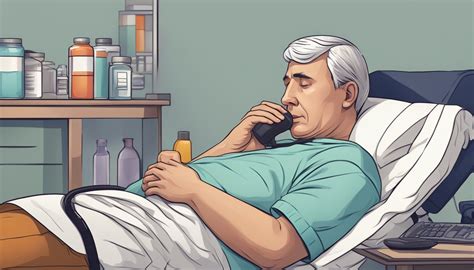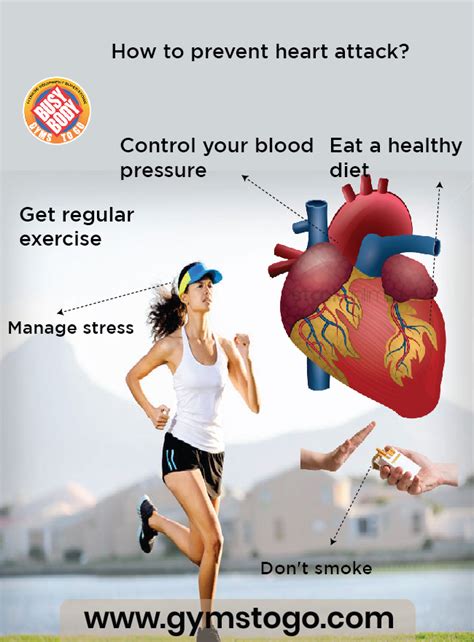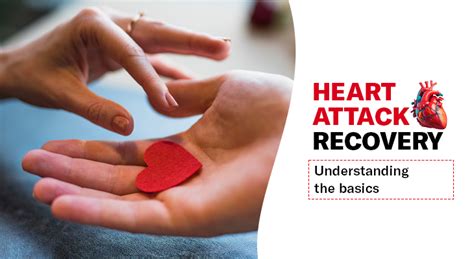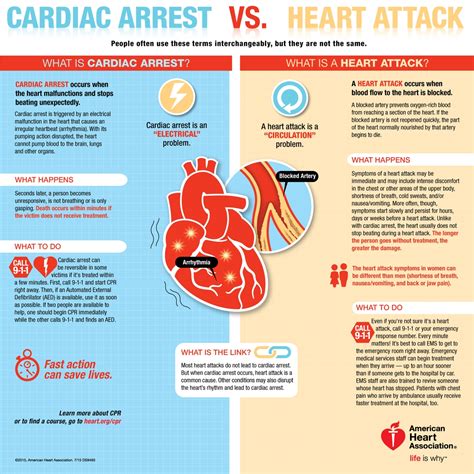Heart attacks are a leading cause of death worldwide, and it's essential to recognize the symptoms to seek medical attention promptly. A heart attack, also known as myocardial infarction, occurs when the blood flow to the heart is blocked, causing damage to the heart muscle. The sooner you identify the symptoms and receive treatment, the better your chances of survival and minimizing damage to your heart. In this article, we will delve into the common symptoms of a heart attack, exploring the warning signs, risk factors, and what to do if you or someone you know is experiencing a heart attack.
Recognizing heart attack symptoms is crucial, as it can be a matter of life and death. The symptoms can vary from person to person, and some people may experience mild symptoms, while others may have more severe symptoms. It's essential to be aware of the common symptoms, such as chest pain or discomfort, shortness of breath, and lightheadedness. By understanding these symptoms, you can take prompt action and seek medical help, reducing the risk of complications and improving outcomes.
The importance of recognizing heart attack symptoms cannot be overstated. According to the American Heart Association, approximately 805,000 people in the United States have a heart attack every year, and about 15% of people who have a heart attack will die from it. By being aware of the symptoms and taking action, you can significantly reduce your risk of complications and improve your chances of survival. In the following sections, we will explore the common symptoms of a heart attack, including chest pain, shortness of breath, and other warning signs.
Common Symptoms of a Heart Attack
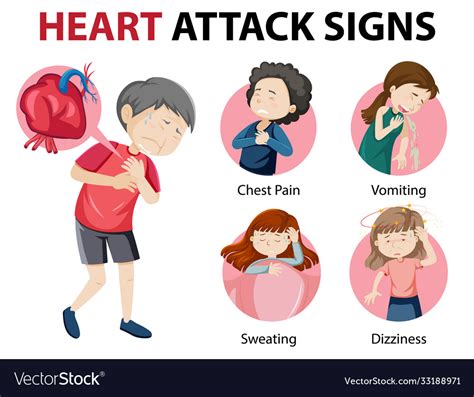
The symptoms of a heart attack can vary from person to person, but there are some common warning signs to look out for. These include:
* Chest pain or discomfort: This is the most common symptom of a heart attack, and it can feel like pressure, tightness, or heaviness in the chest.
* Shortness of breath: People experiencing a heart attack may feel like they can't catch their breath or are having trouble breathing.
* Pain or discomfort in the arms, back, neck, jaw, or stomach: This pain can be a sign that the heart is not getting enough oxygen.
* Lightheadedness or dizziness: Feeling faint or dizzy can be a sign of a heart attack, especially if it's accompanied by other symptoms.
* Fatigue: Feeling weak or tired can be a symptom of a heart attack, especially if it's sudden and unexplained.
It's essential to remember that not everyone will experience all of these symptoms, and some people may experience mild symptoms. However, if you or someone you know is experiencing any of these symptoms, it's crucial to seek medical attention immediately.
Risk Factors for a Heart Attack
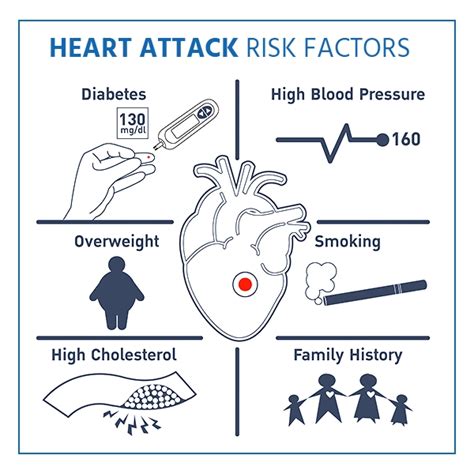
There are several risk factors that can increase your chances of having a heart attack. These include:
* Age: The risk of heart attack increases with age, especially after the age of 45 for men and 55 for women.
* Family history: If you have a family history of heart disease, you're more likely to have a heart attack.
* High blood pressure: Uncontrolled high blood pressure can damage the blood vessels and increase the risk of heart attack.
* High cholesterol: High levels of low-density lipoprotein (LDL) cholesterol can increase the risk of heart attack.
* Smoking: Smoking can damage the blood vessels and increase the risk of heart attack.
* Obesity: Being overweight or obese can increase the risk of heart attack.
* Diabetes: People with diabetes are more likely to have a heart attack.
* Physical inactivity: Not getting enough physical activity can increase the risk of heart attack.
By understanding these risk factors, you can take steps to reduce your risk of having a heart attack, such as maintaining a healthy weight, exercising regularly, and managing conditions like high blood pressure and diabetes.
What to Do If You're Experiencing a Heart Attack
If you or someone you know is experiencing a heart attack, it's essential to act quickly. Here are the steps to take:
1. Call emergency services: If you're in the US, call 911. If you're in another country, call the local emergency number.
2. Stay calm: Try to remain calm and still, as this can help reduce the workload on the heart.
3. Take an aspirin: If you're experiencing a heart attack, taking an aspirin can help reduce the risk of complications.
4. Loosen tight clothing: Loosen any tight clothing, especially around the neck and chest.
5. Stay warm: Keep the person warm, as this can help reduce the risk of shock.
It's crucial to remember that every minute counts during a heart attack. The sooner you receive medical attention, the better your chances of survival and minimizing damage to your heart.
Calling Emergency Services
When calling emergency services, try to provide as much information as possible, such as:
* Your location
* The person's age and medical history
* The symptoms they're experiencing
* Any medications they're taking
By providing this information, you can help the emergency responders prepare for the situation and provide the best possible care.
Preventing a Heart Attack
While some risk factors, such as age and family history, cannot be changed, there are several steps you can take to reduce your risk of having a heart attack. These include:
* Maintaining a healthy weight
* Exercising regularly
* Eating a healthy diet
* Managing conditions like high blood pressure and diabetes
* Quitting smoking
* Reducing stress
By taking these steps, you can significantly reduce your risk of having a heart attack and improve your overall health.
Recovering from a Heart Attack
Recovering from a heart attack requires a combination of medical treatment, lifestyle changes, and emotional support. Here are some steps to take:
* Follow your doctor's instructions: Your doctor will provide you with a treatment plan, which may include medications, lifestyle changes, and follow-up appointments.
* Make lifestyle changes: This may include quitting smoking, exercising regularly, and eating a healthy diet.
* Get emotional support: Recovering from a heart attack can be emotionally challenging, so it's essential to have a support system in place.
By following these steps, you can improve your chances of making a full recovery and reducing your risk of having another heart attack.
Conclusion and Next Steps
In conclusion, recognizing the symptoms of a heart attack and taking prompt action can be a matter of life and death. By understanding the common symptoms, risk factors, and what to do if you're experiencing a heart attack, you can reduce your risk of complications and improve your chances of survival. Remember to take steps to prevent a heart attack, such as maintaining a healthy weight, exercising regularly, and managing conditions like high blood pressure and diabetes. If you or someone you know is experiencing a heart attack, don't hesitate to seek medical attention. Every minute counts, and prompt treatment can make all the difference.
We hope this article has provided you with valuable information about heart attack symptoms, risk factors, and prevention. If you have any questions or concerns, please don't hesitate to reach out. Share this article with your friends and family to help raise awareness about heart attack symptoms and prevention.
What are the most common symptoms of a heart attack?
+
The most common symptoms of a heart attack include chest pain or discomfort, shortness of breath, pain or discomfort in the arms, back, neck, jaw, or stomach, and lightheadedness or dizziness.
How can I reduce my risk of having a heart attack?
+
You can reduce your risk of having a heart attack by maintaining a healthy weight, exercising regularly, eating a healthy diet, managing conditions like high blood pressure and diabetes, quitting smoking, and reducing stress.
What should I do if I'm experiencing a heart attack?
+
If you're experiencing a heart attack, call emergency services immediately, stay calm, take an aspirin, loosen tight clothing, and stay warm. Every minute counts, and prompt treatment can make all the difference.


